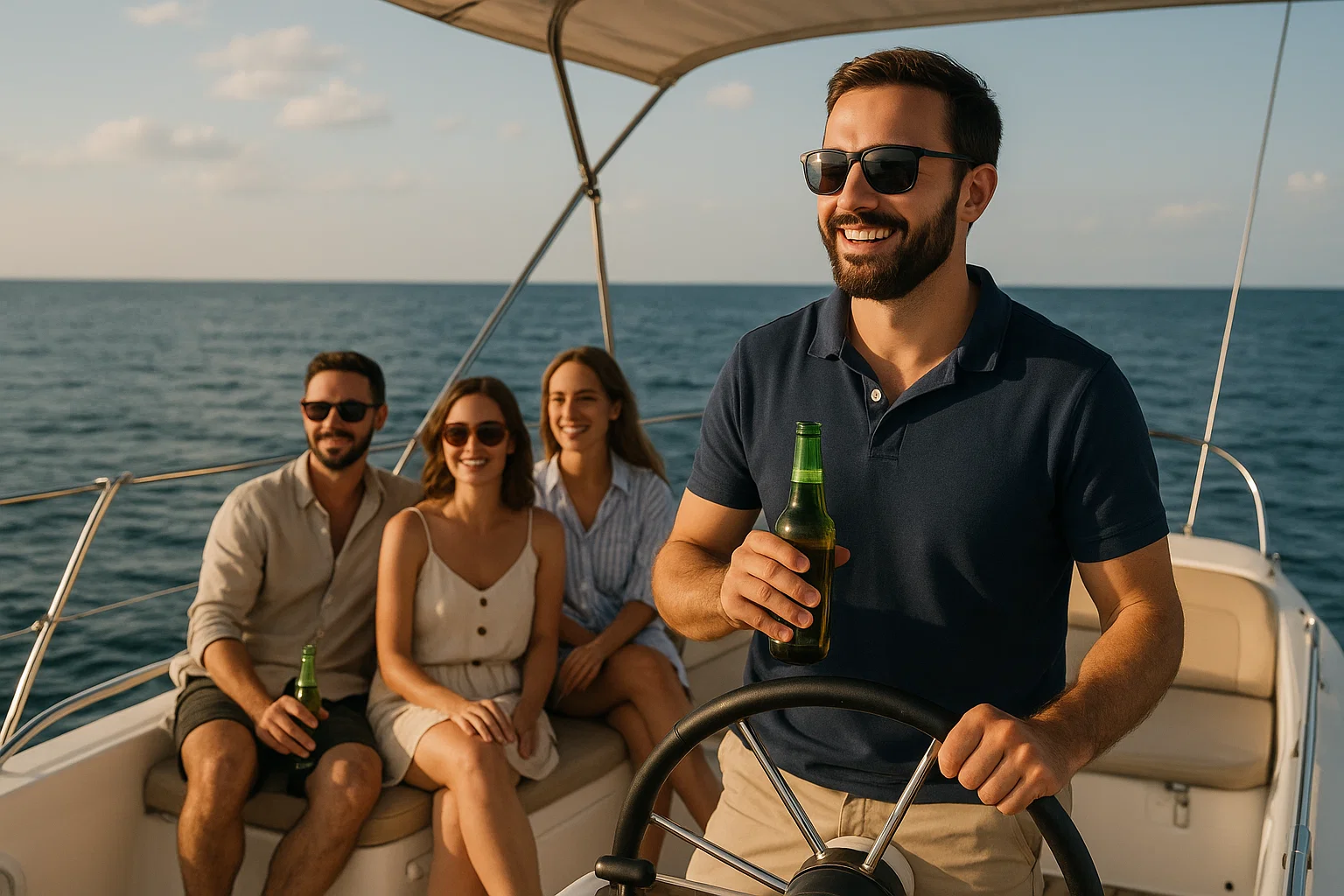Alcohol and Boating – Why It’s a Deadly Combination?
Alcohol and Boating – More Dangerous Than You Think. Learn why zero tolerance matters in Hungary and abroad, and what rules apply to passengers.

A smiling man steering a boat with a beer bottle in hand, three passengers seated behind him – an illustration of the dangers of alcohol and boating.
A few years ago, right in the middle of summer, I was sitting on the deck of a motorboat on Lake Balaton. The sun was glittering brightly on the water, the breeze gently cooled my skin, and everything seemed perfect. From a nearby boat rocking on the waves came the sound of laughter and music. The guy at the helm waved at us with a beer in his hand.
And that’s when I remembered an old story that ended very differently from this idyllic moment.
A few summers earlier, one evening, a group of friends set off on a small motorboat on Lake Tisza. The captain—thinking “a couple of beers won’t hurt”—lost control in a bend. The boat slammed into a pier near the shore. Fortunately, everyone escaped without serious injury, but the outing they had hoped would be a joyful experience on the water became a lifelong warning.
On the water, everything takes effect faster
Many people don’t realize that alcohol affects you much more strongly on the water than it does on land. Sunlight, heat, wind, waves, and constant motion all increase fatigue, slow reaction times, and reduce concentration. A glass of wine or a pint of beer might seem harmless on shore, but at the helm of a boat, that same drink can pose a serious danger to you, your passengers, and everyone else on the water.
Hungarian Regulations – Zero Tolerance
In Hungary, the rule is clear: operating a boat after consuming alcohol is strictly prohibited. There’s no “just one sip” and no “just one beer” — the law enforces zero tolerance.
If you operate a vessel under the influence, you risk not only fines and having your license revoked, but also serious legal consequences if an accident occurs.
Abroad, It’s Not Something to Take Lightly
If you’re boating abroad, it’s worth checking the local regulations in advance. In some places, the permitted blood alcohol level is similar to that for driving on the road (for example, 0.5 ‰), while in others, zero tolerance applies just like in Hungary.
Passengers are usually subject to much more lenient rules, and in many countries, they may consume alcohol as long as they are not involved in operating the vessel or performing safety-critical tasks. However, this can vary from country to country, so it’s always best to find out before you set off.
The Responsibility of Boating
A boat is more than just a vehicle — on the water, you are far more exposed to the elements. A wrong move, a poorly executed maneuver, or a hazard spotted too late can lead to tragedy. In such moments, the captain’s decisions can mean the difference between safety and disaster. And one thing is certain: the best decisions are never made under the influence of alcohol.
At Sidro Nautika, we always emphasize that safe boating is built on knowledge and a responsible attitude. The best experiences are those where everyone returns to shore safely — and that’s only possible when you stay sober.
👉 Check out our boating courses:
C Category International Boating License Course
ICC International Inland and Coastal Boating License Course
On the water, every decision matters. Make sure one of them is a choice you can always be proud of: the choice to stay sober.